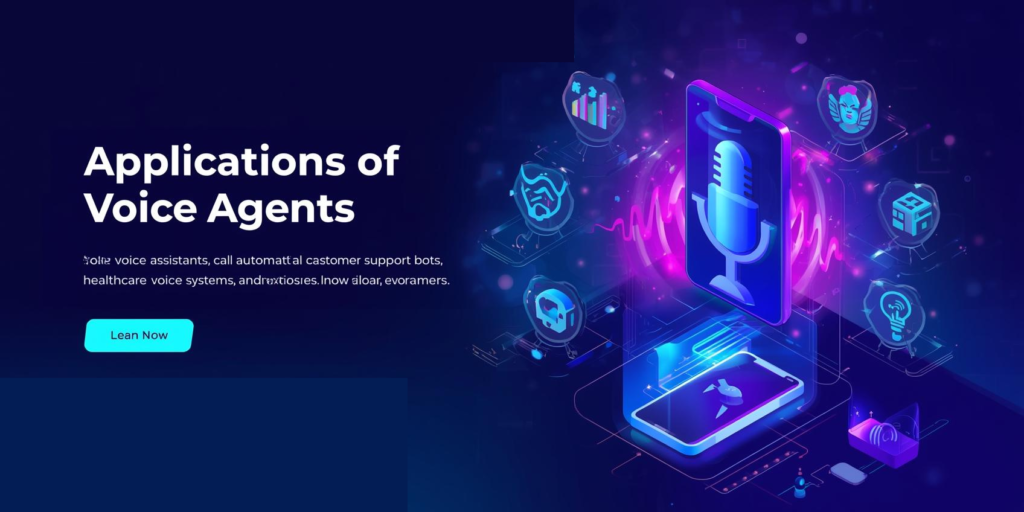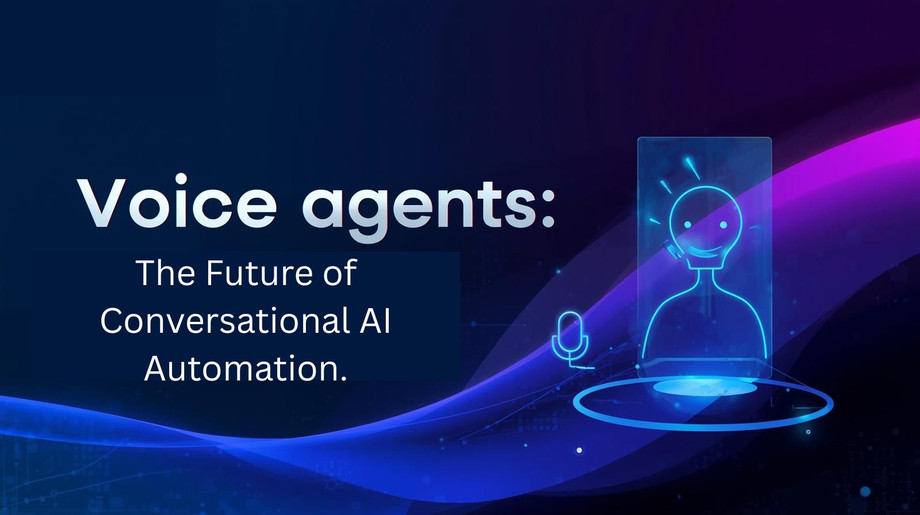Voice Agents: The Future of Conversational AI Automation
Voice agents are AI-powered systems that understand, process, and respond to human speech in real time. Unlike basic voice assistants, these autonomous voice agents can handle complex conversations, make decisions, and complete tasks without human intervention. They represent the next evolution in conversational AI, combining natural language processing with intelligent automation.
The rise of voice agents marks a turning point in how businesses and individuals interact with technology. As AI voice automation becomes more sophisticated, these systems are reshaping industries from customer service to healthcare.
How Voice Agents Work
Voice agents operate through a sophisticated pipeline of interconnected technologies working in milliseconds.
Voice Recognition captures spoken words and converts them into text. Modern systems achieve near-human accuracy, even with accents, background noise, and varied speech patterns.
Natural Language Processing (NLP) analyzes the text to understand meaning, context, and nuance. This goes beyond simple keyword matching to grasp the full intent behind a statement.
Intent Detection identifies what the user actually wants to accomplish. Whether someone says “I need to change my flight” or “Can you switch my booking,” the system recognizes the same underlying goal.
Dialogue Management maintains context throughout a conversation. Voice AI systems remember what was said earlier, track multiple topics, and guide interactions toward resolution.
Autonomous Responses allow voice agents to take action—booking appointments, processing returns, or escalating issues—without waiting for human approval.
Why Voice Agents Are a Breakthrough
Traditional IVR (Interactive Voice Response) systems frustrate users with rigid menus and limited options. Chatbots, while more flexible, often fail to handle complex or emotional conversations.
Voice agents solve these problems. They engage in natural, flowing dialogue that feels human. They adapt to unexpected questions, handle interruptions gracefully, and resolve issues in a single interaction.
The difference is autonomy. While older systems require users to navigate predetermined paths, conversational AI powered by voice agents meets users where they are.
Applications of Voice Agents
 Applications of Voice Agents
Applications of Voice AgentsBusiness Automation Voice agents handle routine calls, schedule meetings, and manage workflows. They free employees to focus on high-value tasks requiring human judgment.
Customer Service AI call automation transforms contact centers. Voice agents resolve common inquiries instantly, reducing wait times and improving satisfaction scores.
Sales Calls Autonomous voice agents qualify leads, answer product questions, and schedule demos. They work around the clock, ensuring no opportunity is missed.
Support Centers Technical support benefits from voice agents that troubleshoot issues, walk users through solutions, and escalate complex problems to specialists.
Healthcare Voice AI systems schedule appointments, send medication reminders, and conduct preliminary symptom assessments. They improve patient access while reducing administrative burden.
Personal Productivity Individuals use voice agents to manage calendars, dictate messages, and automate daily tasks through natural conversation.
Enterprise Workflows Large organizations deploy voice agents across departments—HR for employee queries, IT for helpdesk support, and operations for logistics coordination.
Benefits of Voice Agents
- 24/7 availability without staffing costs
- Instant response times eliminating hold queues
- Consistent quality across every interaction
- Scalability to handle volume spikes effortlessly
- Reduced operational costs by automating repetitive tasks
- Improved customer satisfaction through faster resolutions
- Valuable data insights from conversation analytics
Challenges and Risks
Voice agents face ongoing challenges. Privacy concerns arise when conversations are recorded and processed. Security vulnerabilities could expose sensitive information.
Accuracy remains imperfect in noisy environments or with heavy accents. Emotional intelligence, while improving, still lags behind human agents for sensitive situations. Organizations must also manage the workforce transition as automation reshapes roles.
The Future of Voice Agents
The future of voice AI points toward increasingly seamless human-machine interaction. Advances in emotional recognition will help voice agents detect frustration, confusion, or urgency and respond appropriately.
Multimodal capabilities will combine voice with visual interfaces for richer experiences. Integration with enterprise systems will deepen, allowing voice agents to access real-time data and execute complex workflows.
As conversational AI continues advancing, voice agents will become indistinguishable from human representatives in routine interactions—while handling volumes no human team could match.
Conclusion
Voice agents represent more than incremental improvement—they’re a fundamental shift in AI voice automation. By combining natural conversation with autonomous action, they deliver experiences that satisfy customers and drive efficiency.
Organizations that embrace this technology now will gain competitive advantages in customer experience, operational efficiency, and scalability. The question is no longer whether voice agents will transform business communication, but how quickly.

.png)
Comments
Post a Comment